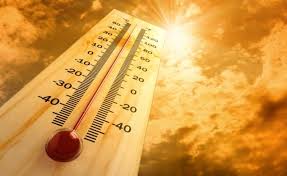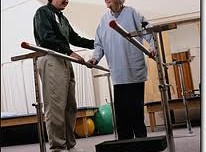 It may be just the first week of summer, but if you are a caregiver to an older adult it is not too early to be alert to the toll that summer’s heat can take on your loved one. Working in geriatric care management, one of the factors that always figure into my assessment of a client’s overall condition is the weather and how well-equipped they may be to cope with what nature sends our way. To avoid the dangers that heat can represent for an elder adult, follow these six tips:
It may be just the first week of summer, but if you are a caregiver to an older adult it is not too early to be alert to the toll that summer’s heat can take on your loved one. Working in geriatric care management, one of the factors that always figure into my assessment of a client’s overall condition is the weather and how well-equipped they may be to cope with what nature sends our way. To avoid the dangers that heat can represent for an elder adult, follow these six tips:
• Replace the water lost. Perspiring is the body’s way to lower its temperature, but it will happen at a higher rate during the hot months of summer. It is imperative that an older person consume more fluids during summer to replace what is lost to perspiration, and that this is not caffeinated or alcoholic liquids which by themselves dehydrate a body.
• Ask their physician. How one copes with the heat can be dependent on the medications they take. I have talked in past postings about the large number of medications older adults typically are prescribed, and many of them can place a person at higher risk for heat-related issues. Especially if they are on a diuretic for high blood pressure, they are losing fluids, a condition that will be exacerbated by the heat and perspiring.
• Dress for success. Success in this case means clothing that will allow more ventilation. Encourage your older adult to wear loose fitting clothes, and choose lightweight fabric like cotton or synthetics. A hat will not only protect the skin from dangerous sun rays, but it also is portable shade to cool your older loved one.
• Don’t overdo it outdoors. Even a walk in the park may prove to be too strenuous in summer’s heat, so help your older loved one monitor how severe the heat is and modify outside activity accordingly. If they will be active encourage them to do so early or late in the day to avoid the highest temperatures, and take more frequent water breaks. If they will be poolside, encourage them to actually get into the water to cool down.
• Cool down. It is possible that your older loved one does not have air conditioning, so find other retreats for the really hot days of summer. Public libraries, shopping malls, public activities centers or other venues can provide a break from the heat and offer social engagement as well. Opening windows on most nights also will give a relief from summer heat along with regular cool baths or showers.
• When all else fails. Even with all these preventive efforts, you may still find your loved one succumbs to the heat, so watch for signs of over-heating. If you see one or more of the following – muscle spasms, headaches, over-tiredness, nausea – get your loved one to a cool area immediately. Begin to rehydrate them as well as use cool, water-soaked cloths on their neck, head or wrists. Running cool water over a person’s wrists also will have a more general cooling effect on the whole body as the cooler blood circulates. If symptoms become worse or are accompanied by disorientation, rapid pulse or seizures get them to medical help right away.
Charlotte Bishop is a Geriatric Care Manager and founder of Creative Care Management, certified professionals who are geriatric advocates, resources, counselors and friends providing elder care management needs to older adults and their families in metropolitan Chicago. Please email your questions to ccbishop@creativecasemanagement.com.





